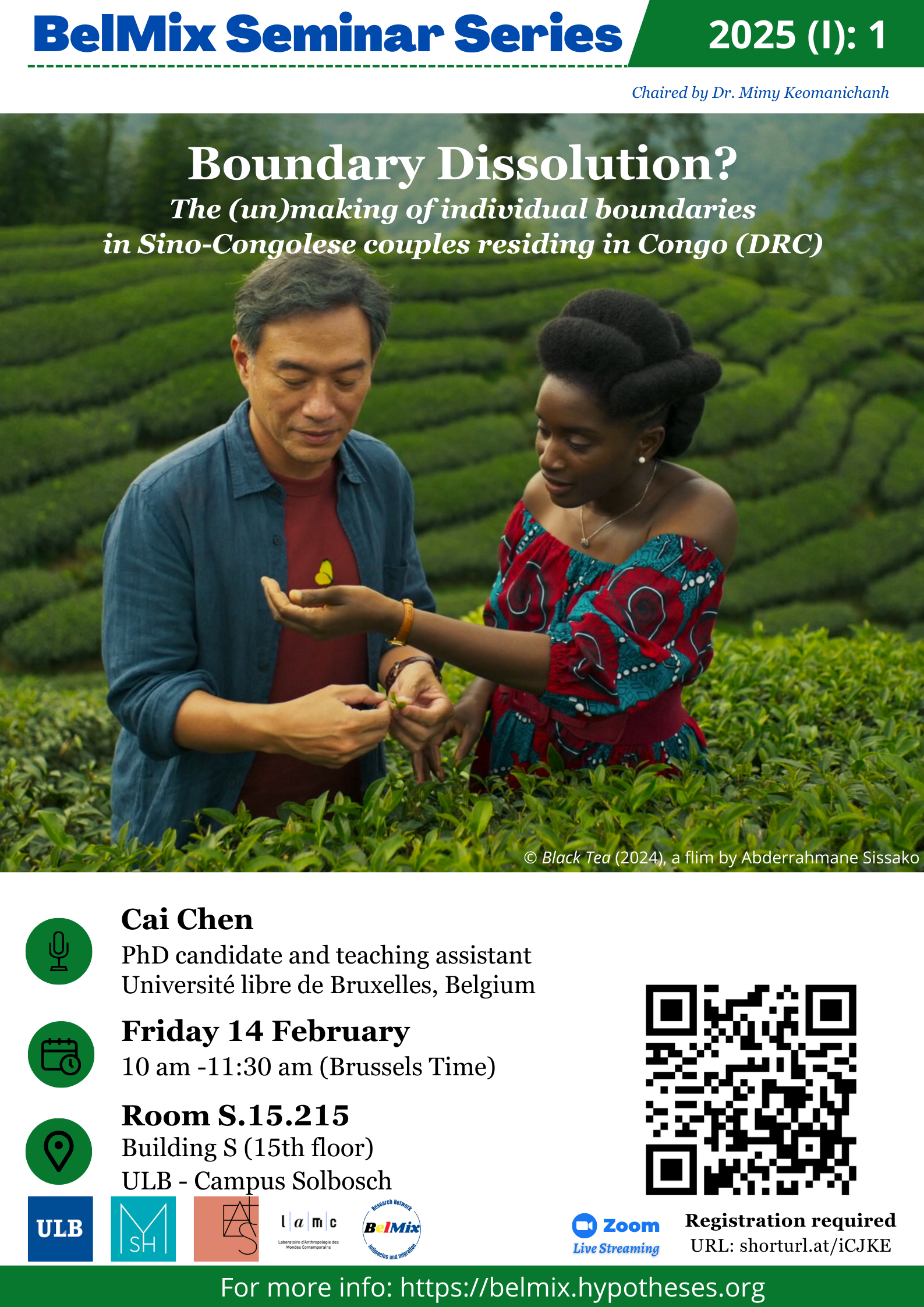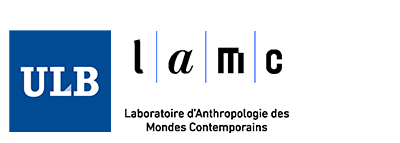Dans la même rubrique
-
Partager cette page
BelMix Seminar Series : Boundary Dissolution? The (un)making of individual boundaries in Sino-Congolese couples residing in Congo (DRC)
Boundary Dissolution? The (un)making of individual boundaries in Sino-Congolese couples residing in Congo (DRC)
By Cai Chen (LAMC, Université libre de Bruxelles)
Abstract:
Sino-African couples have emerged as a notable phenomenon in China-Africa interactions over the past decades. These couples are perceived as mixed due to differences in nationality, ethnicity, culture, religion, and race. Based on a multi-sited ethnography of Sino-Congolese couples residing in D.R. Congo, I examine their experiences of forming exogamous relationships, highlighting how they navigate socially constructed differences from an individualist perspective. Viewing “Chinese” and “Congolese” as fluid categories rather than fixed, naturalized, or bounded ethnic groups, I focus on individuals’ practices of ethnoracial boundary (un)making. I argue that Sino-Congolese couples often overlook ethnoracial differences and/or recognize their partner’s social differences to blur and transcend boundaries. However, they must continuously navigate the multiple differences they and their partners embody to counteract ethnoracial prejudices, stereotypes, and discrimination.
Bio:
Cai Chen is a PhD candidate and teaching assistant at the Laboratory of Anthropology of Contemporary Worlds (LAMC), Université libre de Bruxelles (ULB), Belgium. Cai’s ongoing doctoral research explores the ethnoracial dynamics among Sino-Congolese couples residing in postcolonial DR Congo. He previously worked on the interrelationship between migration and sexuality among Chinese gay students in France. His work has been featured in Handbook of Chinese Migration to Europe (w/ A. Ponce, chap. 17, Brill, 2024), Journal of Chinese Overseas (w/ A. Ponce, 2023), Migrations société (2023), and The Conversation (France).

de 10h à 11h30
ULB - Campus du Solbosch
44 avenue Jeanne - 1050 Bruxelles
Building S, 15th floor
Room S.15.215
AND also live-streamed online via Zoom. Register here to receive the link: <https://shorturl.at/iCJKE>
